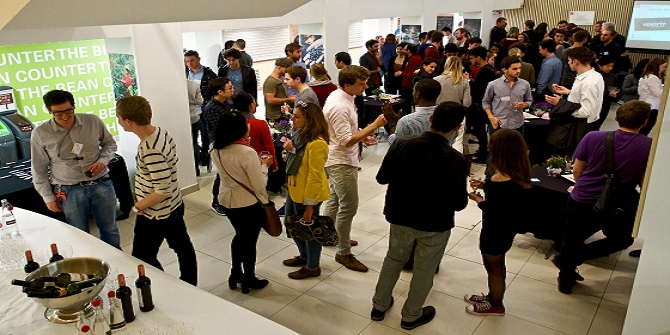Are you changing careers? Learn how to transform your CV from showcasing your work experience to highlighting the new skills you’ve learned on your LSE course. Brendan Kalish, current MSc Candidate in Psychology of Economic Life and Student Futures Ambassador reflects on the process of tailoring their CV while using resources available at LSE Careers.
I’ve been looking at postings for jobs that utilise skills I’ve acquired in my master’s degree but which I haven’t used in the workplace. I recently realised that the CV I’ve been using for years probably won’t land me a position in a new area. If your CV seems inadequate, don’t panic. It just needs some tweaking. LSE Careers has given us a superb guide that walks us through the process of revamping and polishing a CV in detail. Here are some of the highlights.
Choose the right template
I had been using a traditional or reverse-chronological CV that highlighted my work experience to apply for positions within my previous field. But going forward I need to de-emphasise my less than relevant experience in my previous career and draw a prospective employer’s attention to the most important skills I’ve picked up in my course this year and past jobs. I used the skills-based CV for experienced students as a model for my new CV. Several other examples are posted on the CV guide.
Tailor your CV to the position you’re applying for
It’s very important that a potential employer sees the skills and experience that are most relevant for the job they’re hiring for. Pay close attention to the job description as you prepare your CV. It’s highly unlikely that my next employer will care that I shelved items in my first library job. I eliminated that line so it wouldn’t distract from what really matters. Prospective employers will likely be far more interested in my experience with social media and coding qualitative interviews using NVivo.
Make use of the “Target My CV” feature on CareerSet, a free online service that uses artificial intelligence to gauge how well your CV matches a job description. I tested it, and my CV scored very poorly with the job description I pasted into the site. But the report highlighted keywords that I could use in my CV to be more competitive if I were to apply for this position. It’s a more efficient method than my usual approach of reading the job description twenty times.
Seek additional guidance
After finishing, I ran a pdf version of my CV through CareerSet‘s general assessment. I scored much higher than I expected. I used an active voice and avoided unnecessary filler words. The report advised me to remove personal pronouns and clichés, format dates consistently, and lengthen it a bit. You can also book an appointment with an LSE Careers adviser to review your CV with a flesh and blood human being. They can give you more specific advice related to your field and situation.





